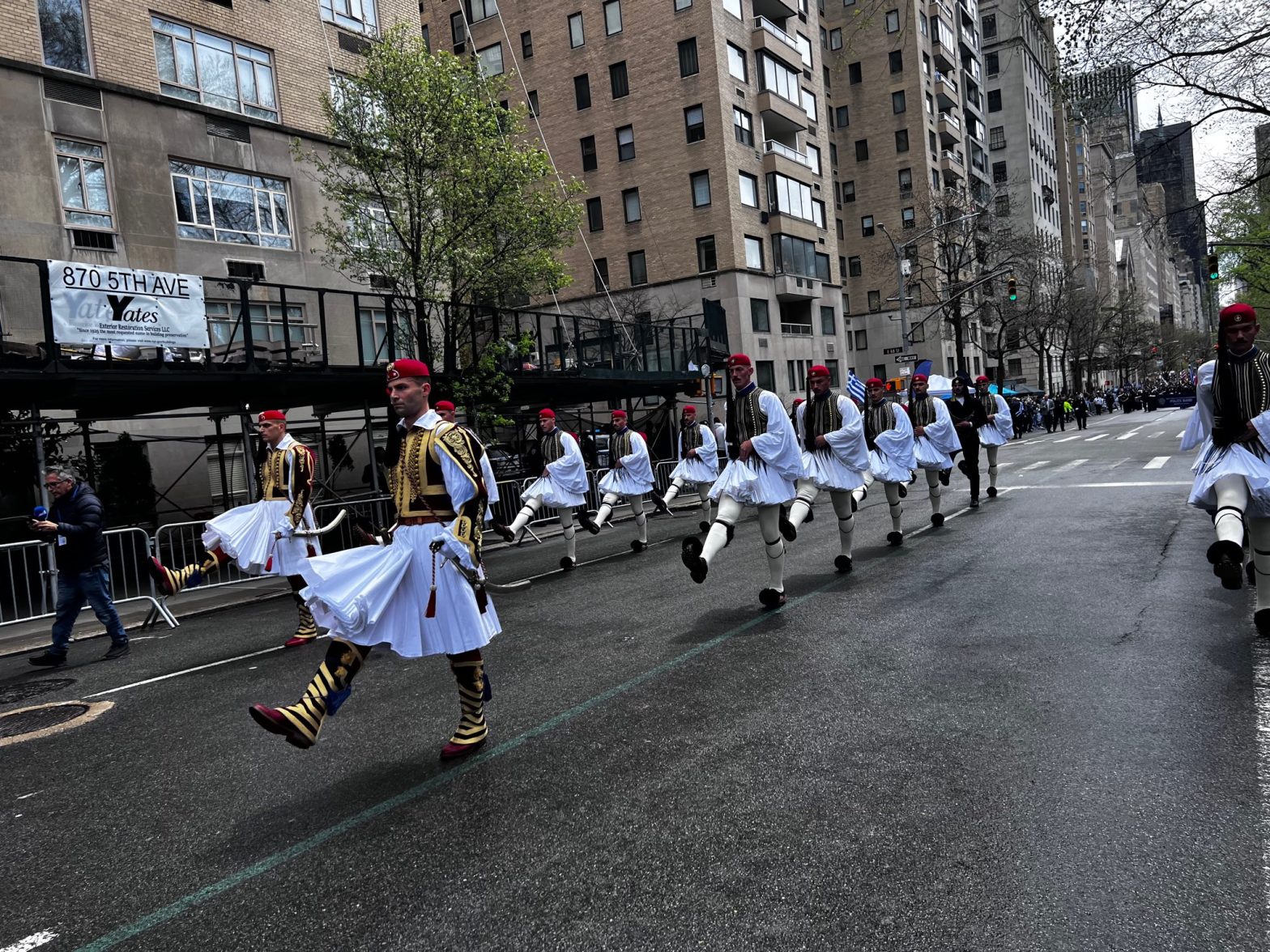General News
Meropi Kyriacou Honored as TNH Educator of the Year
NEW YORK – Meropi Kyriacou, the new Principal of The Cathedral School in Manhattan, was honored as The National Herald’s Educator of the Year.

April 16th:
On this day in 1996, Stavros Spyros Niarchos, the Greek shipping magnate died at the age of 86. Niarchos was born in Athens but his family had its roots in the Laconian village of Vamvakou in the Peloponnese. He studied law at the University of Athens and began working in 1929 in his family’s grain business. Recognizing the substantial transportation expense of importing wheat, Niarchos believed that one would save money by owning the ships that provided the transportation. As a result, he bought his first six freighters during the Great Depression. Niarchos served in the Greek Navy during World War II. While he served, the Allied Forces leased one of his vessels, which was ultimately destroyed in battle. Niarchos saw this as an opportunity and used the insurance funds as capital to expand his fleet after the War. Thus began the emergence of Stavros Niarchos as a significant participant in the world of international commerce. For many years, he owned the largest private fleet in the world, with his company operating more than 80 tankers and other vessels. Although Niarchos passed away twenty-five years ago, his legacy continues into the 21st century with the Stavros Niarchos Foundation. Working in Greece and internationally, the Foundation began its grant-making efforts in 1996 and derives its mission from Niarchos’ commitment to Greece and Hellenism, as well as his keen instincts and interests in support of causes in the fields of education, social welfare, health, arts and culture.
April 21st:
On this day in 1967, a group of four colonels of the Greek army took control of Greece through a military coup d’etat. During the three years before the coup, the political situation in Greece was very unstable – the left wing radicals were gaining strength and there was considerable public unrest – almost daily demonstrations, strikes, and riots. The leader of the coup, Colonel George Papadopoulos, fearful of the upcoming election and the rise of the left, decided that the Greek government needed to be overthrown. The four colonels formulated a plan to arrest all of the generals and politicians they felt might be a threat to their military takeover. Their plan was executed late one night and caught everyone by surprise – they did not fire a single shot. The Greek far-right military junta that followed (also known as the Regime of the Colonels, the Dictatorship, the Junta, and the Seven Years) lasted for seven years, ending on July 24, 1974 under the pressure of the Turkish invasion of Cyprus. The new martial law outlawed strikes, labor unions, long hair on men, mini-skirts, the peace symbol, the Beatles, Sophocles, Tolstoy, Aeschylus, Socrates, Mark Twain, and the free press. The fall of the junta was followed by the Metapolitefsi (‘regime change’) and the establishment of the current Third Hellenic Republic.
April 22nd:
On this day in 1821, the Battle of Alamana was fought between the Greeks and the Ottoman Empire during the Greek War of Independence. After the fall of Livadeia to a contingent of Greek fighters under the command of Athanasios Diakos and Vasilis Bousgos, Hursid Pasha sent two of his most competent commanders from Thessaly to put down the revolt in Roumeli and then proceed to the Peloponnese and lift the siege at Tripolitsa. Diakos and his band decided to halt the Ottoman advance into Roumeli by taking defensive positions near Thermopylae. The Greek forces were outnumbered and Diakos, wounded in the battle, was captured after his sword broke. Diakos was then brought before the Turkish commanders who offered to make him an officer in the Turkish army. Diakos immediately refused and replied: “I was born a Greek and I will die a Greek!” The Turkish commander then ordered that Diakos be impaled. The Ottomans tried to make him carry the sharpened pole, but he threw it down with contempt. As he was led off to be impaled it was said that onlookers heard him sing: “Look at the time Charon chose to take me, now that branches are flowering, now that the earth sends forth grass.” Even though the battle was ultimately a military defeat for the Greeks, Diakos’ death provided Greek national cause célèbre with a stirring myth of heroic martyrdom.
NEW YORK – Meropi Kyriacou, the new Principal of The Cathedral School in Manhattan, was honored as The National Herald’s Educator of the Year.

NEW YORK – The New York Greek Independence Parade on Fifth Avenue, commemorating the 203rd anniversary of the Greek Revolution of 1821, was held in an atmosphere of emotion and pride on April 14.
NICOSIA - Cyprus - home to United Kingdom military bases where fighter jets were used to help defend Israel from an Iranian attack using missiles and drones - has stepped up security on the island amid fears the Middle East conflict could worsen.
A plot of land for sale in Tripoli, Arkadia Prefecture, 268.
ATHENS - Expecting another record year in tourism to surpass the numbers in 2023 in arrivals and revenues, Greece’s infrastructure - particularly on overwhelmed islands - isn’t adequate to deal with the demands even as more resorts keep opening.
For years, Israel and Iran have been engaged in a silent struggle of mutual annihilation.